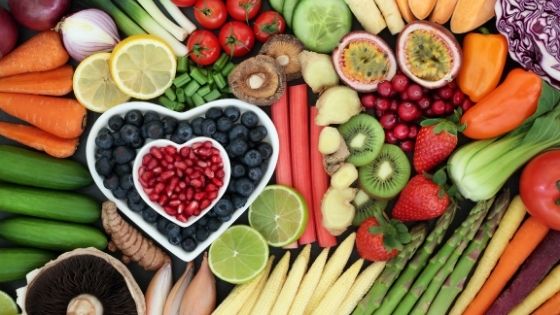Food plays a significant role in our overall health. What we eat affects our physical, mental, and emotional well-being. A well-balanced diet helps boost the body’s natural ability to produce healthy cells. The production of these cells and tissues is important, especially when one is going through cancer treatment.

However, food will taste differently for a patient who is undergoing radiation or chemotherapy in a Cancer Care Center Bowling Green OH. These treatments alter the taste buds and salivary glands, resulting in a loss of appetite.
But the body needs essential proteins and healthy calories to stay stronger. So, here are the following types of nutritious food to consider so the body can respond better and heal faster during treatment.
Lean Meat: Chicken, Turkey, and Fish
Consuming high-protein, low-fat content food such as lean meats (chicken, turkey, and fish) is important since they are an excellent source of B vitamins, particularly B12, and are loaded with complete protein. On the other hand, red meat, such as beef, pork, lamb, and goat, are still viable options for a healthy amount of macronutrients, which are essential for building muscle density.
However, cancer patients are advised to limit red meat consumption to only one pound a week or 130 grams a day (for 3-4 days). It is also important to cook the meat well and completely avoid processed ones such as bacon, ham, and sausages.
Dark Green Leafy Vegetables (DGLVs)
Healthy food does not need to look and taste bland and boring. Add some dark green leafy vegetables to the diet. These include kale, Swiss chard, collard greens, turnip greens, and spinach. They contain nutrients, such as folate, zinc, calcium, iron, magnesium, vitamin C, and fiber.
One of the easiest ways to gain these nutrients from dark green vegetables is to prepare a flavor-filled salad. The main ingredient that can be used is kale since it is a superfood. In fact, cooked kale provides more iron per ounce than beef. It contains a high concentration of antioxidants, vitamin C, and vitamin K, which are great components to ward off prostate, colon, lung, and breast cancers.
Quick Kale Salad Recipe
In a large bowl, combine kale, carrots, onion, sunflower seeds, almonds, and cheese. Then, mix in the preferred dressing and pour about one-third of it over the salad.
Whole-Grain Foods
Whole grains contain phytic acid, phenolic compounds, and saponins, which are key substances that can slow the development of cancer. Some of the most common varieties of this type of food are corn, rice, and wheat.
One kind to include in the diet is the quinoa. It is among the few plants that contain all nine essential amino acids, which are compounds that help in synthesizing proteins, hormones, and neurotransmitters.
Easy Quinoa Fruit Salad
Prepare a bowl and toss the following ingredients together:
- 2 cups of quinoa
- 1 peeled and diced mango
- 1 cup of quarter-sliced strawberries
- ½ cup of blueberries
- 2 tablespoons of pine nuts
- Chopped mint leaves for garnish
Healthy Snacks
During cancer treatment, the body requires extra calories to maintain homeostasis or keep the muscles and organs functioning. For those who undergo radiation or chemotherapy, eating a snack or small meal right before the session can help prevent nausea or vomiting. Some of the healthful snacks to consider are:
- Cereal (hot or cold)
- Cheese (aged or hard cheese, cottage cheese, or cream cheese)
- Cookies
- Crackers
- Dips made with cheese, beans, yogurt, or peanut butter
- Fruit (fresh, frozen, canned, dried)
- Nuts, seeds, and nut butters
- Yogurt (low fat or Greek)
Drink Plenty of Liquids
Aside from water, fresh-squeezed juice or a protein shake will keep one energized and productive during the day. It will give extra vitamins and proteins along with the liquid that will let the body stay hydrated.
Avoiding alcohol is also important as it can cause liver inflammation, which could impair chemotherapy drug breakdown and increase side effects. The American Cancer Society also adds that patients who drink while on treatment risk themselves in developing a new cancer type.
Avoid Taking Supplements
High-dose vitamin, mineral, herbal, and other supplements do not give the same cancer-protective benefits as eating whole foods. They can also interfere with chemotherapy when taken in large doses by disrupting the toxicity and efficacy balance of the ongoing treatment. If a patient feels the need to take supplements, it is best to speak first with a registered dietitian, their primary healthcare provider, and an oncologist.
Learn More
During and after cancer treatment, the patient needs to adapt to their body’s changing nutritional needs. So, following these healthy eating guidelines will help maintain good health condition and speed up recovery.
Aside from proper diet, doing light physical activities, such as walking, will also help to increase the appetite, improve the mood, and reduce the risk of redeveloping cancer. Check with a doctor at a cancer care center in Bowling Green, OH, before starting an exercise program or consult a certified dietician about developing a personalized meal plan.
